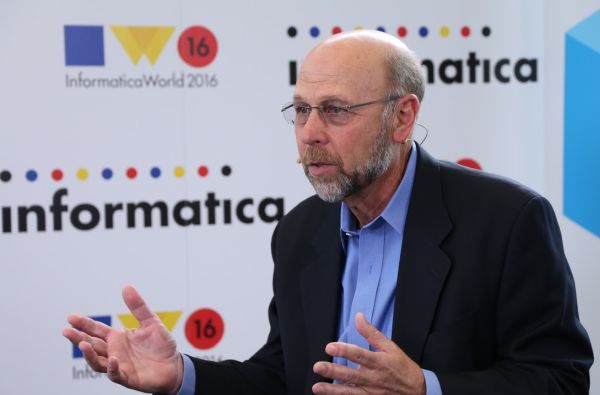 NEWS
NEWS
 NEWS
NEWS
 NEWS
NEWS
The business landscape has been reshaped by technology. One of the most striking examples of this trend is Big Data and Big Data analytics. Collecting, processing and using data isn’t just a thing business does, it’s the new core of business success. Unfortunately, traditional systems for working with data have been cumbersome affairs that demanded a great deal of attention and focus. This is changing, with real-time streaming becoming the term for new Big Data success.
To gain some insight into this new world of real-time data, John Furrier (@furrier) and Peter Burris (@plburris), cohosts of theCUBE, from the SiliconANGLE Media team, visited the Informatica World 2016 conference in San Francisco. They spoke to Jerry Held, board member of Informatica Corp. and executive chairman of MemSQL, Inc.
The conversation opened with a look at why real-time streaming was coming into its own right now. Held explained that before, people were focused on getting their operational systems up and running. Today, he said, we have all the operational systems nailed. “The big change is the ability to act on data in the moment, and that’s hard,” he said.
Part of the impact is in what’s technically feasible, Held pointed out. What’s possible now is that a company can ingest and analyze at the same time. This allows business people to think about entirely new things. Looking at every business, there will be major changes, he added.
There’s been real time for a long time, Held said. The exciting thing now, he added, is there are standard tools coming along. The next thing to do, he explained, is a company needs to transform that data. “That’s where Informatica shines,” he said. “Instead of analyzing and storing, why not stream it in? If a business can analyze and ingest at the same time, why do things twice?”
Lots of people are talking about data as the most important asset of a business, according to Held. But the big issue is: How do you treat data as possibly the most important asset? “There’s so much data in the organization, they need an intelligent data platform that lets them know where the data is, allows the people who need it to get at it, and controls access to sensitive information,” he said.
A company wants to look at the business first, Held said, figure out what problems they want to solve, and then look for the data to support that. A company should drive their data opportunities by their business needs, he concluded.
Watch the full video interview below, and be sure to check out more of SiliconANGLE and theCUBE’s coverage of Informatica World 2016.
Support our mission to keep content open and free by engaging with theCUBE community. Join theCUBE’s Alumni Trust Network, where technology leaders connect, share intelligence and create opportunities.
Founded by tech visionaries John Furrier and Dave Vellante, SiliconANGLE Media has built a dynamic ecosystem of industry-leading digital media brands that reach 15+ million elite tech professionals. Our new proprietary theCUBE AI Video Cloud is breaking ground in audience interaction, leveraging theCUBEai.com neural network to help technology companies make data-driven decisions and stay at the forefront of industry conversations.